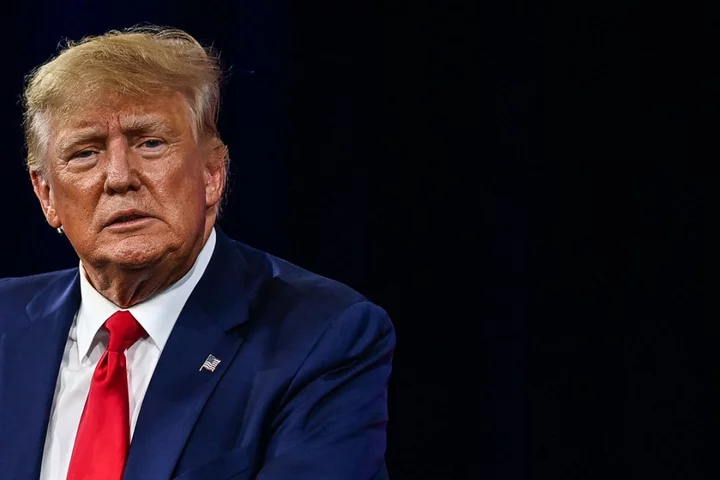
Eight key revelations from Trump’s January 6 indictment
A four-count federal indictment against Donald Trump accuses the former president of conspiring with his allies to overturn the results of the 2020 presidential election and deprive Americans of their right to have their votes counted. The detailed, 45-page federal indictment on 1 August outlines three criminal conspiracies and Mr Trump’s alleged obstruction of the certification of Joe Biden’s victory, a multi-state scheme built on a legacy of lies and conspiracy theories to undermine the democratic process. Mr Trump appeared in court in Washington, DC, on 3 August to plead not guilty to the charges and once more complained that he was the victim of political persecution by his enemies. “When you look at what’s happening this is a persecution of a political opponent,” he told reporters afterwards. “This was never supposed to happen in America. This is the persecution of the person that’s leading by very, very substantial numbers in the Republican primary and leading Biden by a lot so if you can’t beat them you persecute them or prosecute ‘em,” Here are eight key points from the historic indictment of the former commander-in-chief. A five-part scheme to overturn election results The indictment outlines five major elements of an alleged scheme that forms the basis of the charges against Mr Trump, including a conspiracy to overturn the results of the 2020 election. The indictment states that Mr Trump and co-conspirators relied on knowingly false claims about election fraud to pressure state lawmakers and officials to subvert election outcomes by ignoring the popular vote, then dismissing legitimate electors and assigning illegitimate ones loyal to Mr Trump. They then organised those fraudulent slates of electors in states that the Republican lost, according to prosecutors. Mr Trump and his allies then allegedly used the authority of the Justice Department to conduct sham investigations and press state lawmakers into action to approve those false slates of electors. Then-President Trump and his allies then attempted to enlist then-Vice President Mike Pence to reject legitimate results, including an attempt on 6 January 2021 to fraudulently alter the results while overseeing the certification of the election, according to the indictment. And after it was clear that Mr Pence would not do so, Mr Trump “exploited” the chaos from a mob of his supporters, fuelled by his election lies, to continue to delay the certification based on those same false claims, the indictment states. Trump knew his election lies were lies Mr Trump’s “prolific lies” about election fraud span “dozens of specific claims” that he knew were false, according to prosecutors, despite “candid advice” from his own aides, administration officials and the Justice Department and determinations from the courts and election administrators across the country, which the former president then “deliberately disregarded”. His “knowingly false statements” were “integral to his criminal plans to defeat the federal government function, obstruct the certification, and interfere with others’ right to vote and have their votes counted,” according to prosecutors. Many of the examples included in the indictment were previously known, though prosecutors isolated claims and schemes involving five key battleground states that Mr Trump lost. “Despite having lost, [Mr Trump] was determined to remain in power,” according to the indictment. “These claims were false, and the Defendant knew that they were false. In fact, the Defendant was notified repeatedly that his claims were untrue – often by the people on whom he relied for candid advice on important matters, and who were best positioned to know the facts – and he deliberately disregarded the truth.” There are six co-conspirators Six unnamed co-conspirators who allegedly ushered through Mr Trump’s actions are listed throughout the indictment. Based on their alleged actions that match previous descriptions and events surrounding the case in the aftermath of the 2020 election, those co-conspirators are likely to include Trump-connected attorneys Rudy Giuliani, John Eastman and Sidney Powell – all of whom face professional sanctions in the wake of their efforts. The other co-conspirators are likely to include former Justice Department official Jeffrey Clark – who “attempted to use the Justice Department to open sham election crime investigations and influence state legislatures with knowingly false claims of election fraud” – and Kenneth Cheseboro, another attorney who promoted the fraudulent electors scheme. A sixth unnamed co-conspirator is described as a “political consultant who helped implement a plan to submit fraudulent slates of presidential electors to obstruct the certification proceeding”. A pressure campaign and fraudulent electors The attempts among Mr Trump and his allies to pursue a so-called “alternate” fraudulent elector scheme are well reported and central to the House select committee investigation surrounding January 6. The indictment outlines Mr Trump’s use of “deceit” with the aid of his six co-conspirators to pressure officials in Arizona, Georgia, Michigan, Pennsylvania and Wisconsin to subvert legitimate election results and change electoral votes. Mr Trump then relied on “dishonesty, fraud and deceit” to organise those fraudulent electors to submit false vote certificates to Congress, according to prosecutors. Mr Trump and his network of co-conspirators and Republican Party officials directed officials to perform “sham” proceedings that would ultimately position Mr Pence to oversee the fraudulent certification of a bogus slate of electors that would allow Mr Trump to cling to power, the indictment states. The former president also allegedly leveraged the Justice Department and the White House to advance those electors, while Mr Trump ignored legal counsel from the US attorney general to convince Mr Pence to overturn the election. Trump’s attempts to convince Pence to overturn the election When Mr Pence called Mr Trump on Christmas Day in 2020, the president quickly turned the conversation to the upcoming joint session of Congress on 6 January 2021, when Mr Pence was set to preside over the ceremonial certification of the electoral college votes, according to the indictment. “You know I don’t think I have the authority to change the outcome,” Mr Pence said, according to prosecutors. On 1 January, Mr Pence resisted Mr Trump’s efforts again, to which Mr Trump allegedly replied: “You’re too honest.” Days later, Mr Trump and a co-conspirator believed to be Mr Eastman pressed Mr Pence to unilaterally reject the legitimate results or send them back to state legislatures, a strategy that Mr Pence questioned was even defensible, prosecutors wrote. “Well, nobody’s tested it before,” Mr Eastman allegedly replied. The indictment states that Mr Pence took “contemporaneous notes” from that meeting. Mr Trump continued to press Mr Pence, in both one-on-one White House meetings and in public statements in remarks leading up to the attack on the Capitol. That morning, an “agent” for Mr Trump contacted an unnamed US senator asking him to “hand deliver” fraudulent elector certificates from Michigan and Wisconsin, according to the indictment. Mr Pence rejected them. Mr Trump later called Mr Pence demanding once against that he either reject or return legitimate results for Mr Biden. Trump officials considered the Insurrection Act Three days before January 6, a co-conspirator believed to be Mr Clark spoke with a deputy White House counsel who had previously warned Mr Trump that “there is no world, there is no option in which you do not leave the White House” on 20 January 2021. That same White House counsel allegedly tried to dissuade Mr Clark from assuming the role of acting US attorney general, stressing that there was no evidence of widespread fraud and that if Mr Trump successfully overrides the election there would be “riots in every major city in the United States”, according to the indictment. “Well,” Mr Clark allegedly replied, “that’s why there’s an Insurrection Act.” Mr Trump had previously threatened to use the Insurrection Act to quash Election Day protests and civil rights groups and legal analysts had feared his months-long campaign to undermine election results could serve as a pretext to deploy militarised federal and civil law enforcement into American streets. Trump ‘exploited’ the Capitol attack to keep delaying the inevitable Following an hours-long siege at the Capitol and Mr Trump’s initial refusal to urge his supporters to leave, the president’s aides and co-conspirators tried to pressure members of Congress to object to the election results. That evening, White House aides tried calling two senators, Mr Giuliani tried calling five senators and a US representative, another co-conspirator tried to reach six senators and Mr Giuliani left a voicemail urging a senator to “slow it down so we can get these legislatures to get more information to you,” according to the indictment. In another message to a senator, he repeated bogus statements about election fraud and told them to “object to every state and kind of spread this out a little bit like a filibuster,” the indictment states. The attack obstructed Congress and delayed the certification for approximately six hours. Mr Pence ultimately announced the certification of Mr Biden’s victory at 3.41am. A charge that stems from the Civil War’s aftermath A crime of conspiracy against rights invokes Section 241 of Title 18 of US Code, a law that dates back to bedrock civil rights protections for newly enfranchised Black Americans in a turbulent Reconstruction era in the aftermath of the Civil War. It was among criminal codes under the Enforcement Acts, also known as the Ku Klux Klan Acts, designed to protect Americans’ civil rights enshrined under then-newly enacted 13th, 14th and 15th Amendments. The acts effectively allow the federal government to protect the rights of people to vote, hold office, serve on juries and receive equal protection under the law. Section 241 criminalises conspiracies to “injure, oppress, threaten, or intimidate any person” from exercising such rights. Read More Live updates: Trump pleads not guilty at arraignment in 2020 election case Trump, January 6 and a conspiracy to overturn the 2020 election: The federal investigation, explained Will Donald Trump go to prison? Trump’s election fraud claims were always bogus. Will his history of lies finally catch up to him? Jack Smith held nothing back. Here’s what the Trump indictment really means Why Trump is charged under a civil rights law used to prosecute KKK terror Trump may face up to 20 years in prison. But that doesn’t stop him from doing harm
2023-08-14 21:25
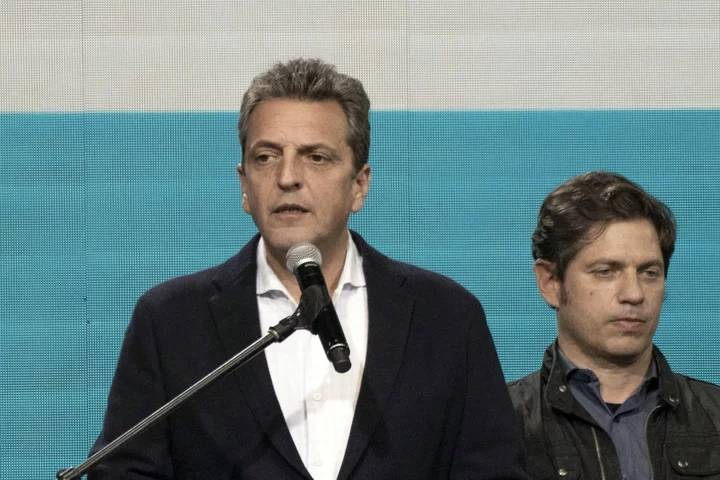
Dog-Loving, Central-Bank-Hating Economist Upends Argentine Polls
Javier Milei began and ended his victory speech shouting “Long live freedom, dammit!” and proceeded to thank his
2023-08-14 21:18
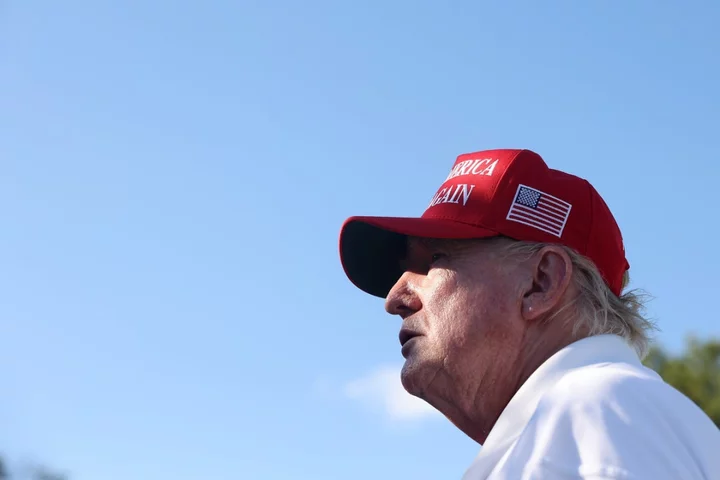
Trump blasts Jack Smith for accessing his Twitter account
Former president Donald Trump criticised Special Counsel Jack Smith for obtaining a search warrant for his old Twitter account early Monday morning. Mr Trump blasted Mr Smith’s office, which is leading investigations into the former president’s handling of classified documents and his efforts to overturn the 2020 presidential election. “How dare lowlife prosecutor, Deranged Jack Smith, break into my former Twitter account without informing me and, indeed, trying to completely hide this atrocity from me,” he posted on Truth Social. “What could he possibly find out that is not already known. Just like the early morning raid of Mar-a-Lago!” Unsealed records showed that Mr Smith’s office obtained a search warrant for Mr Trump’s account. Twitter, now known as “X,” was prohibited from informing Mr Trump. A federal court agreed with Mr Smith’s office that there were “reasonable grounds to believe” that disclosing the warrant “seriously jeopardize the ongoing investigation” by giving the former president “an opportunity to destroy evidence, change patterns of behavior, [or] notify confederates.” But X was fined $350,000 for failing to meet the deadline to produce the records in a timely manner. The three-times-indicted, twice-impeached former president said the Department of Justice should investigate President Joe Biden. “Why isn’t the DOJ raiding Crooked Joe Biden, the most CORRUPT (and Incompetent!) President in the history of the United States?” A federal grand jury indicted the former president earlier this year after a four-hour presentation from Mr Smith’s office for Mr Trump’s efforts to overturn the 2020 presidential election. Mr Trump pleaded not guilty to four charges. Mr Trump also railed against Judge Tanya Chutkan, who is presiding over the case in Washington DC, whom he said “obviously wants me behind bars.” “VERY BIASED & UNFAIR!” he said on his networking platform. Mr Trump also criticised Fani Willis, the district attorney for Fulton County, Georgia, as she prepares to potentially indict the former president for his efforts to overturn the election results in the state. “I UNDERSTAND THROUGH ILLEGAL LEAKS TO THE FAKE NEWS MEDIA THAT PHONEY FANI WILLIS, THE D.A. OF FULTON COUNTY, GEORGIA, WANTS DESPERATELY TO INDICT ME ON THE RIDICULOUS GROUNDS OF TAMPERING WITH THE 2020 PRESIDENTIAL ELECTION,” he said. “NO, I DIDN’T TAMPER WITH THE ELECTION! THOSE WHO RIGGED & STOLE THE ELECTION WERE THE ONES DOING THE TAMPERING, & THEY ARE THE SLIME THAT SHOULD BE PROSECUTED. I MADE A PERFECT PHONE CALL OF PROTEST. WHY WASN’T THIS FAKE CASE BROUGHT 2.5 YEARS AGO? ELECTION INTERFERENCE!” -Alex Woodward contributed to this report Read More Jack Smith obtained search warrant for Trump’s Twitter account, newly unveiled court documents show Trump heaps praise on anti-Muslim conspiracy theorist as fourth potential indictment looms in Georgia – latest How Fani Willis oversaw what might be the most sprawling legal case against Donald Trump Rising political threats take US into uncharted territory as 2024 election looms EXPLAINER: What are special counsels and what do they do?
2023-08-14 21:16
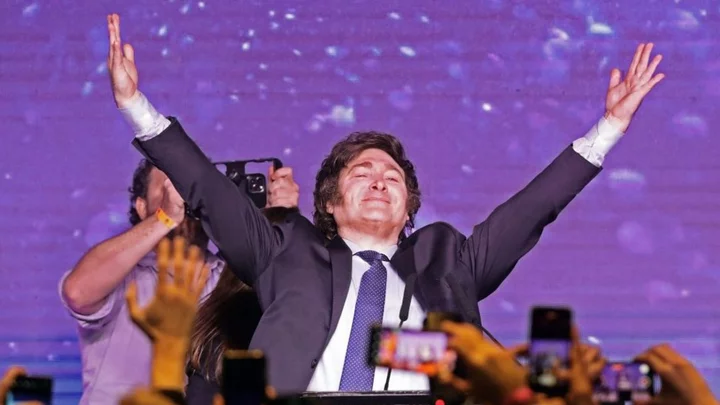
Javier Milei: Trump admirer leads race for Argentina presidency
Javier Milei gets the biggest number of votes in a primary considered a key indicator for the election.
2023-08-14 19:54
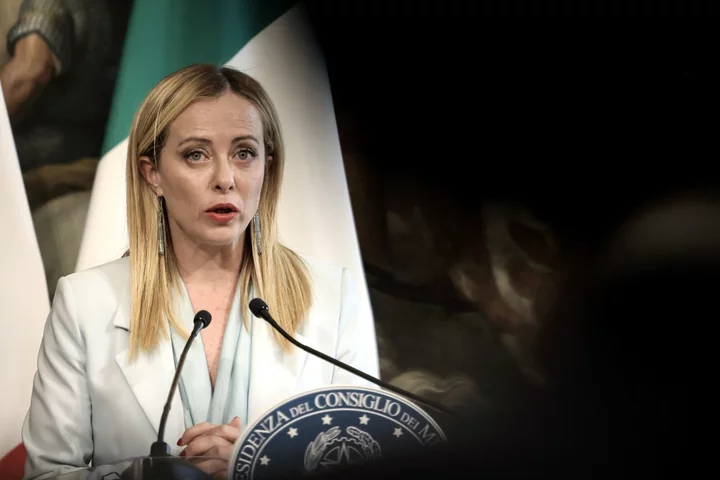
Meloni Takes Ownership of Banks Levy That Showed Populist Bent
Giorgia Meloni assumed full responsibility for last week’s surprise decision to impose a 40% tax on Italian banks’
2023-08-14 18:58
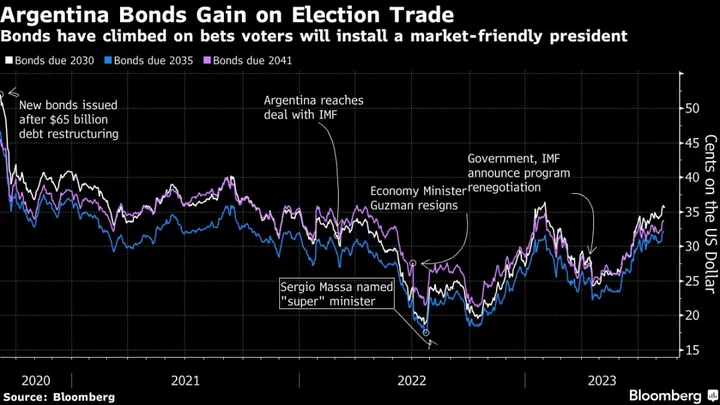
Argentina’s Dollar Bonds Plunge on Populist’s Election Upset
Argentine dollar bonds fell sharply on Monday after a populist who vowed to burn down the central bank
2023-08-14 18:52
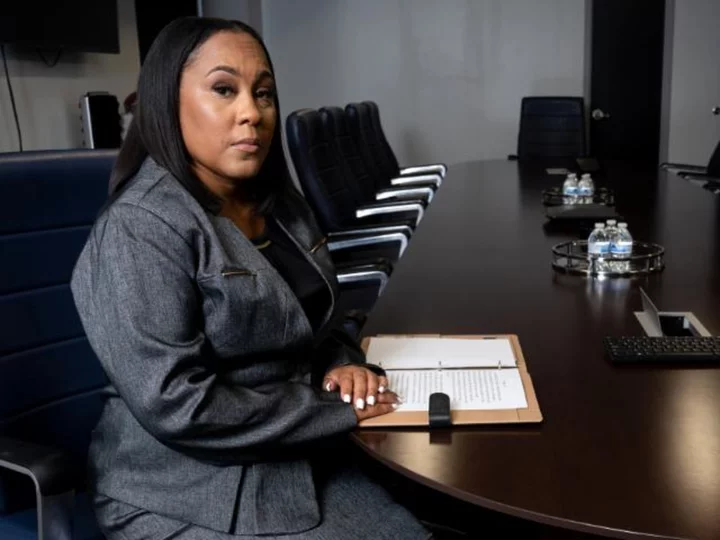
Who is Fani Willis, the Atlanta prosecutor expected to seek charges over Trump's 2020 election subversion bid?
Fulton County District Attorney Fani Willis has reemerged in the spotlight amid news that her office is expected to seek indictments regarding efforts by Donald Trump and his allies to overturn the 2020 presidential election results in Georgia.
2023-08-14 17:23
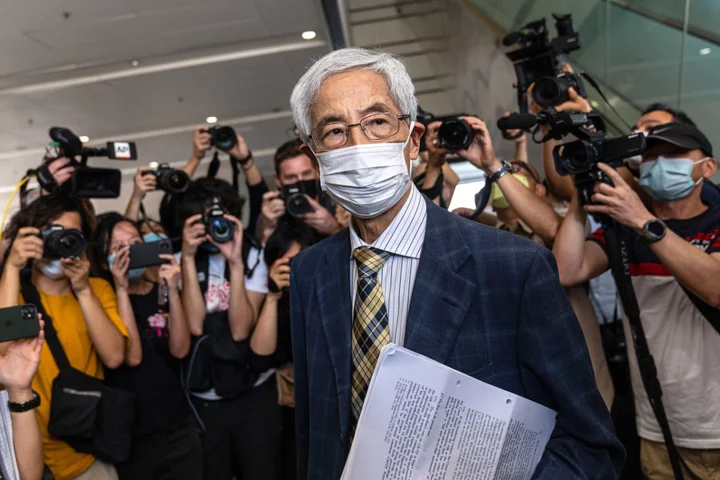
HK Democracy Activists Win Narrow Legal Victory in Protest Case
A Hong Kong court overturned one of two convictions for seven top democracy activists including media mogul Jimmy
2023-08-14 14:28
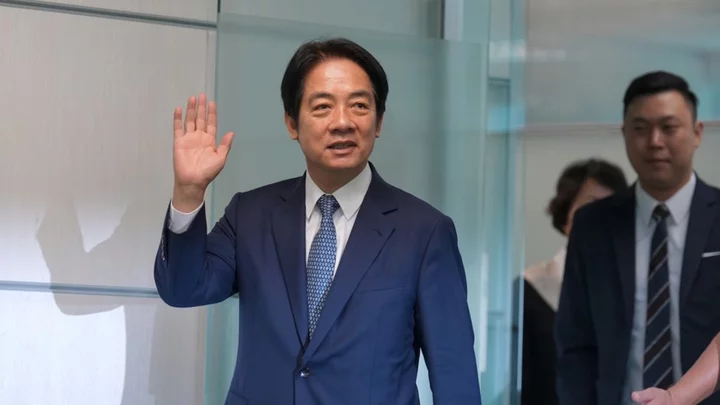
Taiwan vice president is 'troublemaker', says Beijing
William Lai's stopovers in New York and San Francisco on his way to Paraguay have riled China.
2023-08-14 13:55
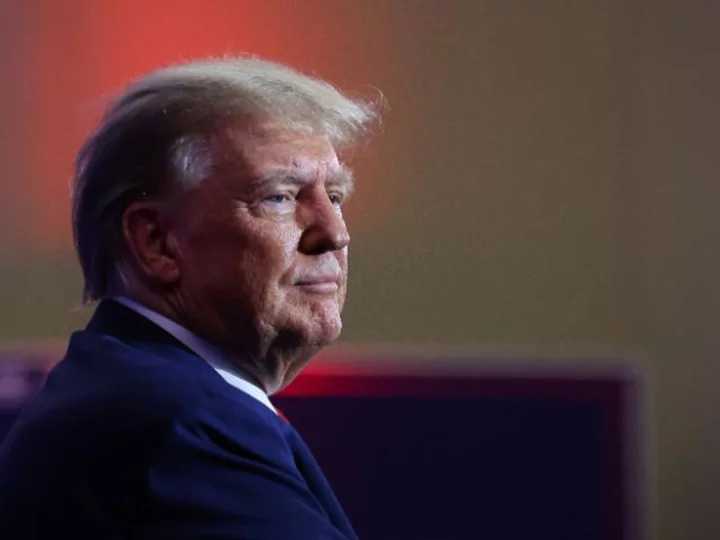
A stunning possible fourth indictment looms over Trump and the 2024 election
Yet another likely criminal indictment is looming over Donald Trump this week, which would deepen his already extreme legal quagmire and further divert an unparalleled election season from the campaign trail into multiple courtrooms.
2023-08-14 12:28
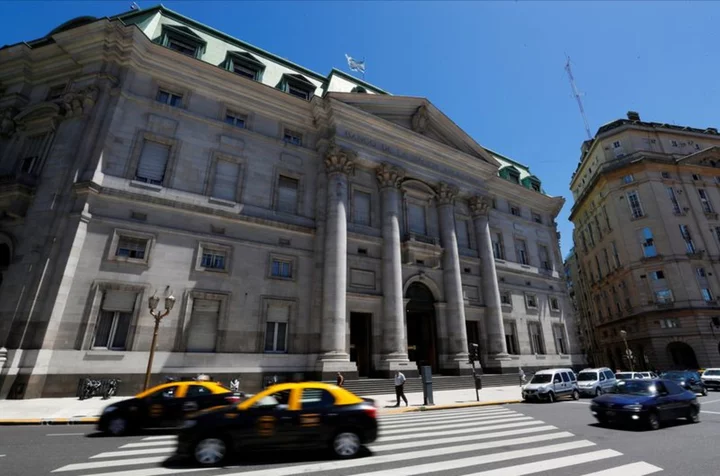
Argentina markets face election hangover after far-right primary bombshell
By Eliana Raszewski BUENOS AIRES (Reuters) -Argentina's markets face an election hangover on Monday after a shock primary election win
2023-08-14 12:20
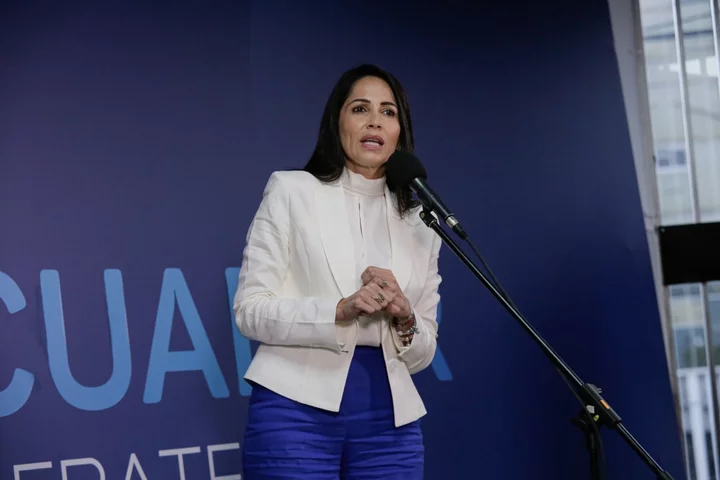
Ecuador Candidates Struggle to Stand Out After Rival’s Killing
Ecuador’s presidential candidates struggled to distinguish themselves in a bumpy debate on Sunday, marked by the absence of
2023-08-14 11:50
